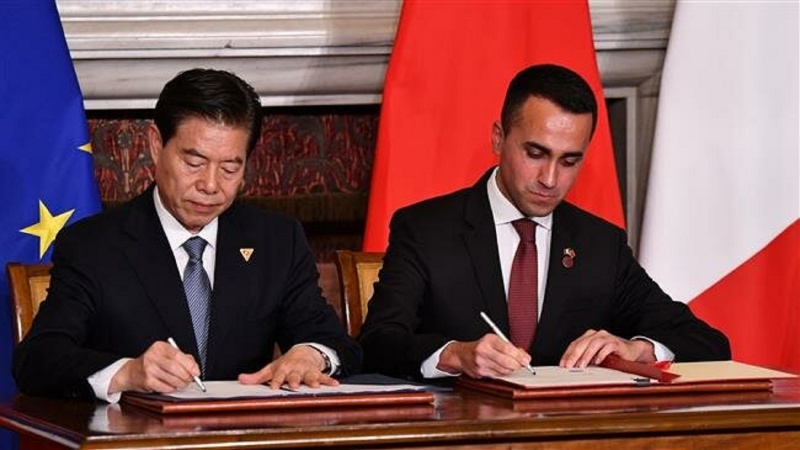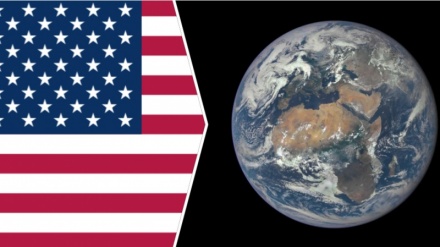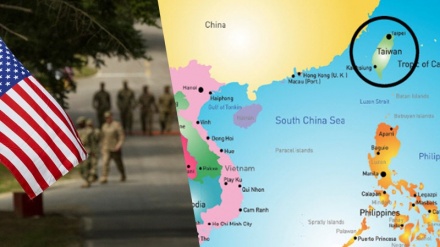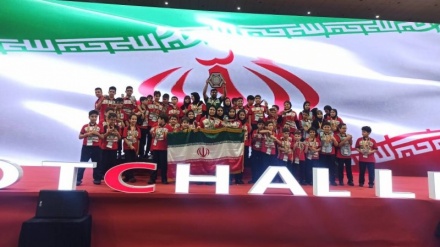Italy endorses China's new Silk Road plan despite US warnings
-

China\'s Commerce and Trade minister, Zhong Shan (L) and Italy’s Labor and Industry Minister and deputy PM Luigi Di Maio
Italy has joined China’s Belt and Road Initiative (BRI), an international infrastructure plan, dismissing calls from the United States to shun the project.
The endorsement makes Italy the first major Western power to back the initiative at a time of a grueling trade war between the United States and China.
Italian Deputy Prime Minister Luigi Di Maio inked the memorandum of understanding on behalf of the Italian government during Chinese President Xi Jinping's three-day visit to the European country.
Di Maio told reporters that although his country remained fully committed to its Western partners, it had to put Italy first when it came to commercial ties.
“This is a very important day for us, a day when Made-in-Italy has won, Italy has won and Italian companies have won,” he added.
During Xi’s visit, Italian companies also signed agreements with Chinese firms worth an initial 2.5 billion euros ($2.8 billion). The deputy prime minister said the contracts had a potential, future value of 20 billion euros.
The BRI plan, also known as the One Belt One Road project and championed by Xi, aims to link China by sea and land with Southeast and Central Asia, the Middle East, Europe and Africa, through an infrastructure network on the lines of the ancient Silk Road.
The US, which is currently engaged in a massive trade dispute with China, views the vast Asian country as a direct threat to its economic dominance and has expressed pessimism about Xi's infrastructure plan.
Earlier this month, Washington warned Italy against supporting the plan, denouncing it as a “vanity project.”
Italy, determined to pull itself out of an economic recession that has gripped countries in southern Europe, has dismissed calls from Washington to shun the BRI.
Last year, US Vice President Mike Pence slammed China’s BRI, arguing that Chinese funding of the infrastructure project was burdening developing nations with debt.
“The United States offers a better option. We don’t drown our partners in a sea of debt,” he further claimed. “We don’t offer a constricting belt or a one-way road.”
President Xi rejected US criticism of the project, saying it is not "a trap."
The administration of US President Donald Trump has imposed steep tariffs on billions of dollars worth of Chinese products.
Since taking office, Trump has claimed that China’s rise as an exporting powerhouse is hurting US workers and manufacturing.
Trump has imposed tariffs on $250 billion in Chinese goods and threatened to target all Chinese exports to the US. Beijing has responded by imposing tariffs on $110 billion in US products.
Other trade partners of the US, including the European Union, Canada and Mexico, have also retaliated with tit-for-tat tariffs against American products.
MG


